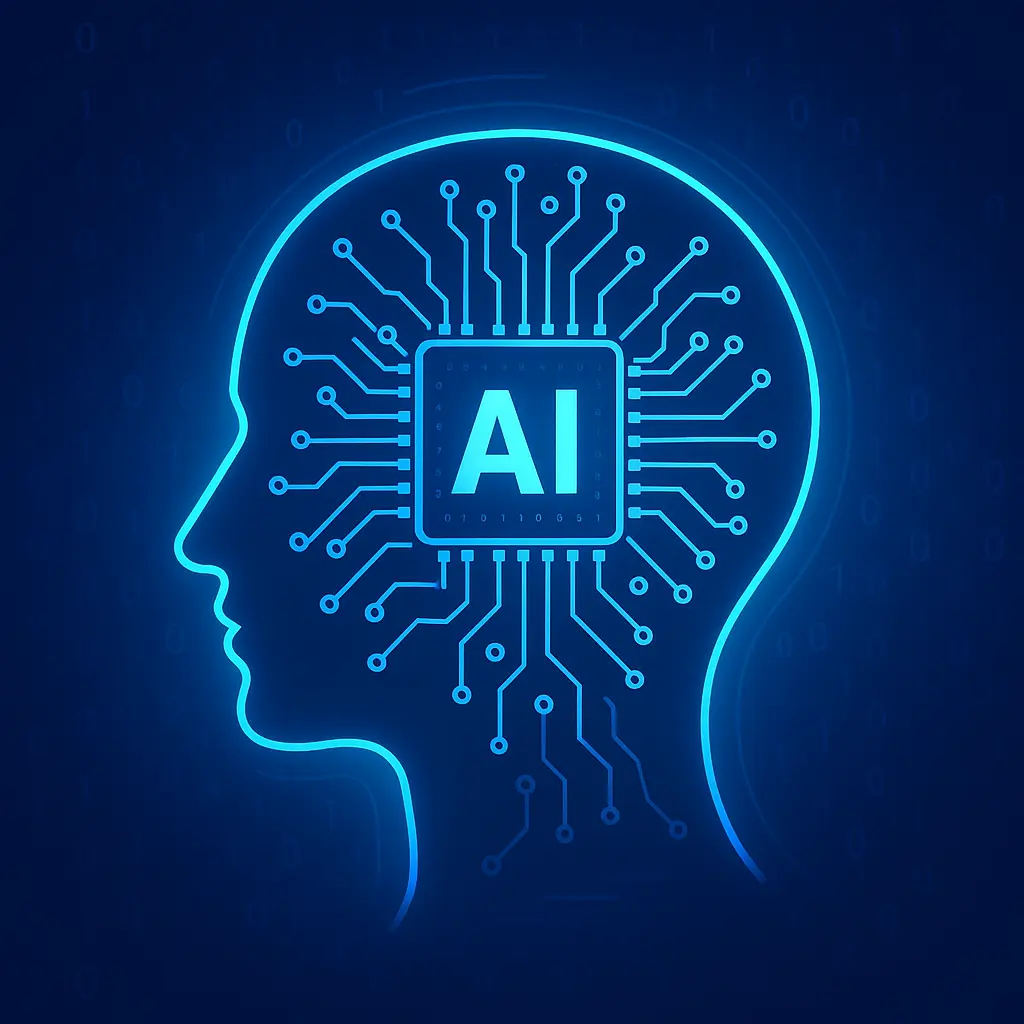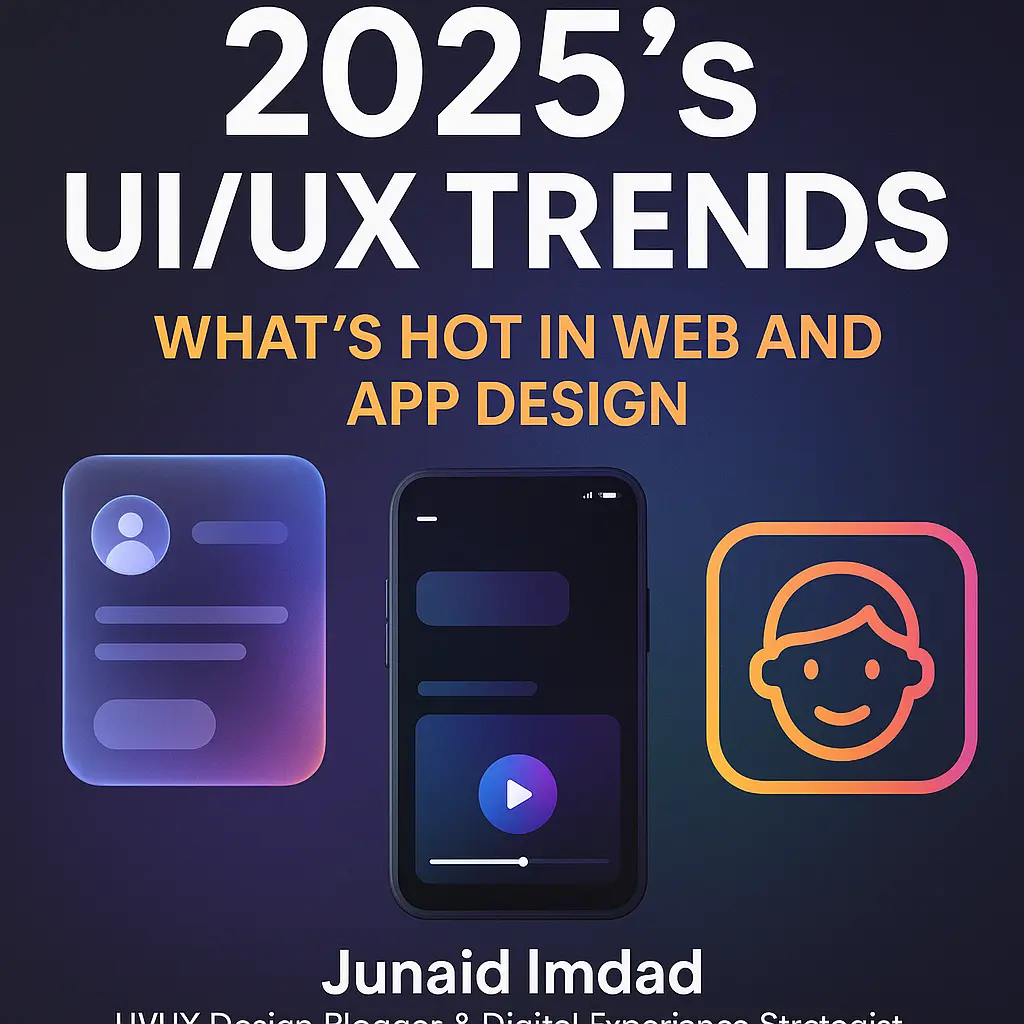seo

June 27,2025 • 6 min read
AI in Keyword Research and On-Page SEO: How to Rank Smarter in 2025

AI in Keyword Research and On-Page SEO: How to Rank Smarter in 2025
By Junaid Imdad, Blogger & Digital Experience Strategist
Let’s be honest: SEO in 2025 doesn’t look anything like it did a decade ago. Gone are the days of keyword stuffing, robotic content, and manually researching every search term with a spreadsheet. Today, artificial intelligence (AI) is redefining the way we think about both keyword research and on-page SEO and if you're not using it yet, you're already behind.
As someone who's spent the last five years writing about digital marketing trends and optimizing content, I've witnessed firsthand how AI has shifted from a buzzword to an essential SEO tool. In this blog, we’ll break down how AI is transforming keyword research, enhancing content strategies, improving user experience, and helping businesses achieve better rankings on search engines like Google.
From Gut Feeling to Data-Driven Precision: AI-Powered Keyword Research
Traditional keyword research often relied on intuition, manual checks in Google Search Console, and basic tools like Google’s Keyword Planner. In 2025, AI tools can:
- Analyze billions of search queries in real-time
- Predict emerging trends before they peak
- Understand search intent and semantic relationships
- Group keywords by topic clusters automatically
For example, tools like Surfer SEO, SE Ranking, Ahrefs, and Semrush AI Assistants now provide AI-enhanced keyword suggestions that not only show volume and difficulty but also intent, seasonality, and competitive analysis.
AI even helps identify long-tail keywords and questions people ask, which are goldmines for featured snippets and voice search.
Predictive SEO in Action
Want to rank for keywords before they explode? Predictive AI tools analyze user behavior, social media signals, and content gaps to suggest topics before they hit mainstream.
Example: If you're a health blogger, AI might alert you that "microbiome and mental health" is trending upward based on academic papers and Reddit threads, long before it's a mainstream term.
Understanding Intent: AI Goes Beyond Keywords
It’s no longer enough to know what users are searching. You have to understand why they’re searching.
AI helps classify keywords based on intent:
- Informational (e.g., “how AI affects SEO”)
- Navigational (e.g., “Surfer SEO login”)
- Transactional (e.g., “buy SEO course online”)
- Comparative (e.g., “Ahrefs vs Semrush for beginners”)
This helps shape your content strategy so you can build landing pages, blogs, or product pages that actually satisfy user needs and rank.
AI-powered intent classification also helps you avoid creating content for the wrong format. For example, don’t try ranking a blog post for a term that Google reserves for e-commerce product pages.
On-Page SEO: Real-Time Optimization Powered by AI
AI isn’t just helpful before you write, it’s also powerful while you write.
Modern tools like Frase, Writesonic, Jasper, and Surfer SEO now offer real-time on-page optimization suggestions:
- Ideal word count
- Keyword density range
- Topic relevance
- Content score compared to top-ranking pages
- Questions to answer
- Suggested headlines
As a writer, this is game-changing. It’s like having a personal SEO editor working with you in real time.

NLP and Semantic SEO
Natural Language Processing (NLP) is one of the most advanced applications of AI in SEO. Google’s BERT and MUM algorithms now understand context and user intent better than ever before.
What this means for content:
- Synonyms and semantically related terms matter more
- Keyword stuffing can hurt rather than help
- Answering user questions in clear, natural language boosts rankings
AI SEO tools can highlight missing entities or concepts from your page that top-ranking content includes, helping you fill the semantic gap.
Automating Internal Linking
AI also helps optimize one of the most underutilized SEO tactics: internal linking.
Instead of manually hunting down relevant pages, AI tools scan your website and suggest optimal internal link structures based on:
- Topical relevance
- Authority flow (PageRank sculpting)
- User journey mapping
This not only improves crawlability but also keeps users on your site longer, something Google loves.
Voice Search and AI: Matching Natural Language Queries
As voice search continues to grow (over 60% of smartphone users now use voice assistants), optimizing for natural language becomes critical.
AI helps by:
- Suggesting conversational keywords
- Structuring content in Q&A format
- Recommending schema for voice-rich results (like FAQ or HowTo schema)
Want to show up when someone says, “Hey Google, what’s the best on-page SEO strategy?” AI tools help you write exactly what voice assistants want to surface.
Personalization and User Experience (UX)
Google’s ranking systems now incorporate user engagement metrics such as:
- Time on page
- Bounce rate
- Scroll depth
AI tools can simulate user journeys and offer suggestions to improve UX:
- CTAs in the right places
- Easier navigation
- Scannable formatting (bullet points, subheadings, rich media)
Platforms like Clearscope and MarketMuse even grade content readability and structure, helping you create web pages users love to stay on.
Want to know about UI/UX trends, click on it.

Real-Time Performance Monitoring and Optimization
In the past, you had to wait weeks to understand if your SEO changes worked. Now, AI provides real-time feedback:
- Rank tracking and anomaly detection
- Predictive traffic modeling
- Automated A/B tests for headlines and metadata
This allows for faster iterations, smarter decisions, and ultimately better ROI.
AI-Powered Competitor Analysis
Understanding what your competitors are doing is still crucial but now AI does the heavy lifting.
It can:
- Reverse-engineer their keyword strategies
- Compare backlink profiles
- Benchmark content quality
- Predict what they might target next
This arms you with the insights needed to outrank them.
The Ethics of AI in SEO: A Quick Note
While AI is powerful, over-relying on it for automation can backfire. Google still values:
- Original thought
- Human expertise
- Authoritative voices (E-E-A-T)

Use AI to guide and enhance, not replace your content creation. The best-performing SEO content in 2025 blends AI insights with human experience.
Final Thoughts: Adapt or Fall Behind
AI isn’t replacing SEO, it’s evolving it.
If you’re a business owner, marketer, or content creator in 2025, you need to understand that AI is no longer optional. It’s your co-pilot, your research assistant, your strategist.
By using AI for:
- Smarter keyword research
- Context-aware content optimization
- Better UX and internal linking
- Voice and visual search readiness
You’re setting yourself up for long-term SEO success.
Remember, Google’s algorithms are AI-driven. To rank in search, you must speak its language. And that language is being shaped every day by tools, systems, and insights powered by artificial intelligence.
Have you integrated AI into your SEO workflow yet? If so, what tools have helped you the most? Let’s talk in the comments or connect on LinkedIn.
Junaid Imdad
Blogger & Digital Experience Strate
Dev IT City LTD. Details
User Profile
- Full name
- Dev IT City LTD.
- Email address
- info@devitcity.com
- Join Date
- 2024-07-28
- State
- City
- Pincode
- Address
- Follow us on Facebook
- Follow us on Twitter
- Website Name
- https://devitcity.com/
- Bio
- Established in 2022, Dev IT City Ltd. offers a comprehensive suite of digital solutions for businesses. We specialize in software development for mobile and web, along with various marketing services, including SEO, social media marketing, and graphic design. With a proven track record of success in the UAE, Malaysia, UK, USA, Philippines, Pakistan, India, Europe and other countries, Dev IT City Ltd. is your trusted partner for achieving digital success. We bridge the gap between marketing strategy and software development. Our team of passionate marketers and skilled developers work together to craft impactful digital experiences that drive results. We don't just talk success, we build it. Join us on this journey as we shape tomorrow's digital experiences, one breakthrough at a time.